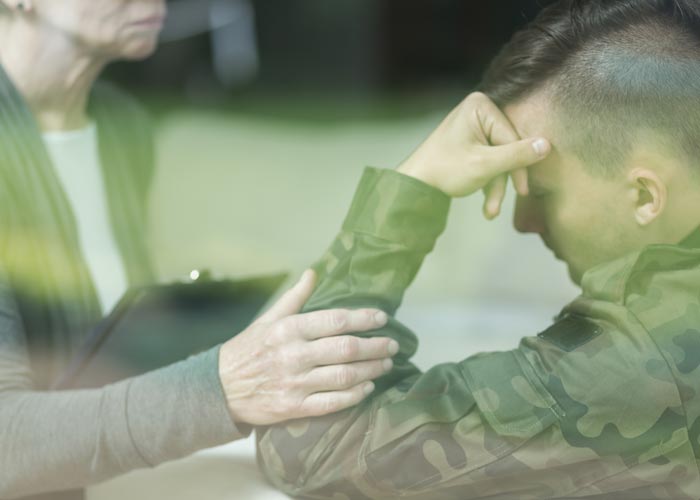
Do you or a loved one have a service-related mental disability? People with a psychiatric disability (such as post-traumatic stress disorder) often have a hard time proving the connection between their disability and their military service. This is why it’s important you understand the system used by the U.S. Department of Veterans Affairs to determine .
In this blog post, we will go over how the VA psychological rating system works and how you can get the compensation you need for . A knowledgeable VA benefits attorney will also be able to help you out.
What does the VA psychological rating system look at?
The VA psychological rating system looks at how well you are able to function socially, which includes socializing with friends and family and being able to work a job. To qualify for compensation, the VA will also look at when your symptoms first developed. In general, you won’t be eligible to receive if the symptoms didn’t first develop during active duty.
How do I increase my VA disability rating?
It is important that you tell the truth about how your service-related mental disorder affects your ability to hold down a job or socialize with friends and family. It’s not uncommon for veterans to try and hide anything they see as a weakness in themselves. However, it’s important to be honest with your VA mental health provider so they can record your symptoms and provide an accurate diagnosis.
Avoid giving simple yes or no answers to your mental health provider’s questions. Instead, make sure you explain your answers and provide information about your symptoms. Do not exaggerate your symptoms. The VA doesn’t look kindly on those who try to take advantage of the system.
You may be able to increase your chances of getting military disability benefits if you:
- Write a personal statement describing symptoms and how you function on a day-to-day basis
- Ask family members to write supporting statements
- Keep track of symptoms (severity and frequency)
- Hire an experienced lawyer for veteran disability claims
You’ll want to seek legal help for veterans while trying to increase your .
What do the different disability ratings mean?
100% rating:
- Completely dependent on others for care
- Usually hospitalized
- Requires constant supervision
- Unable to work to any extent
- Requires psychiatric medication at all times
- Unable to form and sustain relationships
70% rating:
- Mostly dependent on others for care
- Usually in hospital, care facility, or with family members
- Requires supervision 50% of the time
- Requires psychiatric medication at all times
- May not be able to work
- May be severely under-employed
- Unable to form and sustain relationships most of the time
50% rating:
- Occasionally hospitalized
- Can mostly take care of personal hygiene
- Able to function most of the time (shop, drive, clean, etc.)
- Requires psychiatric medication at all times
- Able to work, but may be underemployed
- Able to work, but have difficulty holding down a job due to symptoms
- Able to form relationships, but unable to sustain them
30% rating:
- Occasional short hospitalizations
- Can take care of themselves most of the time
- Usually requires psychiatric medication
- Able to work
- Able to function normally (shop, drive, clean, etc.)
- Able to form and sustain relationships, though they may be stained because of symptoms
10% rating:
- Always will be able to take care of themselves
- Rarely need hospitalization, if ever
- May or may not need psychiatric medication
- Symptoms may only arise during times of great stress
- Fully employable
- Able to form and sustain healthy relationships
0% rating:
- Medical condition diagnosed, but has no impairing symptoms
Ready for More Information?
Our Kalamazoo VA disability lawyers have experience helping veterans receive the compensation they need for military-related mental disorders. Your doesn’t have to define you. If you need a lawyer for a veteran psychiatric disability claim, call the VA Disability Group, PLLC at 1-844-838-5297.





Comments are closed